Speakers
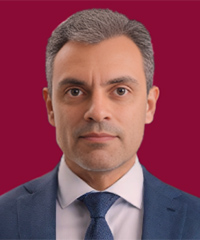
Pier Paolo Piccaluga is an Associate Professor of Pathology at the Department of Medical and Surgical Sciences at the Bologna University School of Medicine. He is also a co-founder and Executive Physician at the Biobank of Research, IRCCS S. Orsola-Malpighi Hospital in Italy. He has led the Molecular Hematopathology Laboratory for many years.
In 2018, he was appointed to teach at Queen Mary University of London (UK) and Jomo Kenyatta University of Agriculture and Technology in Nairobi (Kenya), and since 2023, at the University of Nairobi and the University of Botswana.
He is the author of several international publications indexed in the Current Contents (including Nature Medicine, Journal of Clinical Investigation, Journal of Experimental Medicine, Journal of Clinical Oncology, Blood, Lancet Oncology, and Lancet Infectious Diseases, with a total impact factor >1,000, a mean impact factor >6, and an H-index of 62 (ranked among the VIA-Academy Top Italian Scientists).
He is the author of several presentations at national and international conferences.
Dr. Piccaluga has participated in several clinical trials as a coordinator or sub-investigator and has won multiple awards for his contributions to study and research. He has served as a Principal Investigator (PI) in various research projects funded by nationally and internationally recognized organizations.
He is the Editor-in-Chief of the World Journal of Hematology, Digital Medicine and Healthcare Technology, Advances in Precision Medicine, and the Journal of Cancer Biomoleculars and Therapeutics.
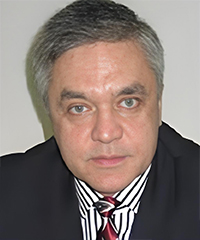
Sergey Suchkov, graduated from Astrakhan State Medical University with MD in 1980. From 1980 through 1983 has been working as Res Associate, and from 1983 through 1985 as Senior Res Associate at the Inst of Medicical Enzymology, USSR Academy of Medical Sciences. In 1985, maintained his PhD at the Sechenov University. From 1986 through 1994 was a Senior Res Associate at a variety of the Research Institutions and Universities in Moscow. In 1989-1993, was trained at the NEI, NIH, Bethesda, MD, USA, and Wills Eye Hospital, Philadelphia, PA, USA, as well as at some of the British universities on the invitation of the Royal Society for Immunology. From 1994 through 2006, was a Director of the Division for Clinical Immunology & Immunobiotechnology, Vladimiskii Moscow Clinical Research Institute (MONIKI). In 2002, maintained his Doctor’s Degree at the National Institute of Immunology, Russia. From 2006 through 2014, was The First Vice-President responsible for Personalized and Precision Medicine of The University of World Politics and Law, Moscow, Russia. From 2003 through 2021, was a Professor of the Dept for Clinical Human Pathology of Sechenov University,Moscow, Russia. From 2014 through 2021, was a Professor and Chair of the Dept (since 2016 The Director of the Center) for Personalized & Precision Medicine of Sechenov University,Moscow, Russia. From 2021 through Jan 2023, is a Professor, Chair of the Dept for Personalized Medicine, Precision Nutriology & Biodesign, and Vice-Director for Research, International Collaboration & Development of the Institute for Biotechology & Global Health of the RosBioTech National University, Russia. From 2007 through the present time, is a Professor of the Dept for Clinical Allergology & Immunology of the Russian University of Medicine, Moscow, Russia. From 2004 through 2021 was staying in USA, Europe and Japan, whilst doing a lot to implement technologies of Personalized and Precision Healthcare services into the daily clinical practice.
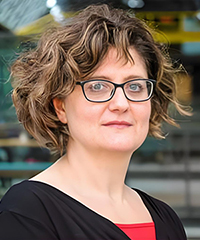
Lejla currently holds the position of Associate Professor at the Department of Magnetic Detection and Imaging. Her expertise lies in the fields of medical imaging, computer vision, medical devices, and laparoscopy, as evidenced by her (co-)authorship of over 70 publications (excluding conference abstracts).
Lejla pursued her studies in Electrical Engineering at Delft University of Technology. Under the guidance of Prof. Babuska, she successfully completed her undergraduate program focusing on fuzzy clustering of medical signals. She also worked alongside Dr. ir. van Wijk van Brievingh, Prof. Ince, and Prof. Lelieveldt exploring the analysis of colonoscopy images. In 2013 she obtained het PhD from Erasmus Universiteit Rotterdam (Biomedical imaging Group Rotterdam) supervised by Prof. Niessen. Her research in this period encompassed a wide range of methods for assessing cancer treatment outcomes using pre-clinical and clinical data. Her doctoral thesis, titled ‘Quantification of tumour heterogeneity in MRI’, was defended within two graduate schools: Advanced School for Computing and Imaging and Molecular Medicine.
Throughout her academic journey, Lejla has held research fellowships at esteemed institutions, including Leiden University Medical Center (Division of Image Processing), Academic Medical Center University of Amsterdam (Experimental Anaesthesiology), Engineering Science at the University of Oxford (Robotics Research Group, led by Sir. Brady), Texas A&M University at Qatar (Department of Electrical and Computer Engineering). Additionally, she served as a scientific researcher and project leader at TNO, a renowned Dutch contract research institute. In 2019, she assumed the role of Assistant Professor at the Department of Magnetic Detection and Imaging at the University of Twente.
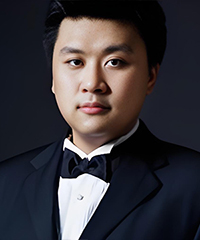
He studied electrical engineering at the Technical University of Berlin (Dipl.-Ing., 2009) and information and communication systems at Shanghai Jiao Tong University (M.Sc., 2011). Since 2016, he has been a researcher for biosignal processing, human activity recognition, virtual reality, music information retrieval, and multidisciplinary application of AI at the Cognitive Systems Lab of the University of Bremen, where he received my Ph.D. (2021). He is co-responsible for four multipartner projects: Arthrokinemat (intelligent knee bandage), IntEL4CoRo (interactive learning for cognitive robotics), NF-BWB (young talent development), and SEED (reflecting artificial biosignals for human robot interaction). He developed the first smart knee bandage that recognizes users' activities in real-time (Best Student Paper, BIODEVICES 2019) and proposed Motion Units, an activity modeling method with interpretability, generalizability, and expandability, rationalizing kinesiology and speech recognition knowledge into human activity research (2021). Three papers on high-level feature design (co-author), music signal processing (first author), and EMG-based AUR (co-author) were/are the Best Paper Finalists by BIOSIGNALS 2022, SIGMAP 2022, and BIODEVICES 2025, respectively. Eight articles for which he is the single first or/and corresponding author were marked as "Highly Cited Paper" (top 1%) and "Hot paper" (top 0.1%) by World of Science. He collected and released the 19-channel, 22-activity, 20-subject human activity dataset CSL-SHARE (2021). A dataset of ECG acquisition artifacts called sensORder was published under my guidance (2024). He received the following third-party funding and awards: the Erasmus Teaching Mobility Award (2018), the CAMPUSiDEEN Public Choice Award for advanced sensing and recognition technology (2022), and the YERUN Research Mobility Award (2022/2023). He has served as Co-Chair, Co-PC, Co-TPC, AC, or Publicity Chair for over ten important international conferences, including 33rd ICANN, 17th BIOSIGNALS, and 7th ABC. He is an editorial member of several international journals, and was awarded Sensors 2023 Outstanding Reviewer.
Recently, his international collaboration has expanded to AI for energy efficiency and smart building, assistance tool for amateur singers and exoskeletons, among others, for which a considerable number of topics are carried out in parallel. Currently, he is a chief expert invited by Guodian Nanjing Automation Co., Ltd., and a guest chief professor invited by Xi'an University of Architecture & Technology.
Previous Speakers
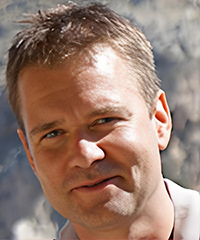
Ludger Johannes has specialized in the field of endocytosis and intracellular trafficking. He and his team study how sugars attached to proteins or lipids influence the transport of biological material into eukaryotic cells. Johannes is research director “classe exceptionnelle”(DRE) at the Institut Nationale de la Santé et de la Recherche Médicale (INSERM, where he was recruited in 1997. He currently directs the Cellular and Chemical Biology department (U1143 INSERM–UMR3666 CNRS) at Institut Curie in Paris, France. He is an elected member of the European Molecular Biology Organization (EMBO], and German Academy of Sciences Leopoldina and an alumnus of the Germany-based Boehringer Ingelheim Fond–Foundation for Basic Research in Medicine and the German Academic Scholarship Foundation Studienstiftung des deutschen Volkes.
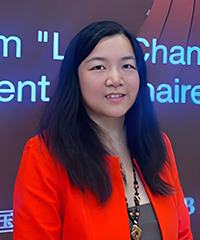
Dr. Ye-Lehmann graduated from the Chemistry Department of Peking University with a bachelor degree. She went to the USA in 1998 and received PhD in chemistry from the University of Pennsylvania in 2004. She moved to France as a research fellow at the Institute of Biology of Ecole Normale Superieure (ENS) in 2010, sponsored by the Pierre-Gille de Gennes Foundation. She subsequently became a project leader in ENS and was recruited by INSERM as a tenured researcher in 2011. In 2016, through an open call competition, she was awarded to set up a Synthetic Biology Team in the Laboratory of Computational and Quantitative Biology of the Sorbonne University. From 2016 to 2019, she moved to the INSERM U1195 unit specialized in neurosteroids and diseases, which situated inside the Bicetre Hospital. Since then she focuses on innovative optogenetics tools to study structural-function relationships of neuronal receptors, and providing therapeutic insights for anesthesia and diseases such as the Alzheimer's. She has published more than 50 papers in journals.
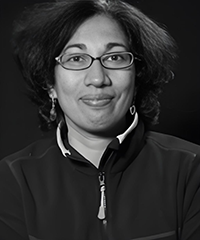
Dr. Nandini Vasudevan is currently working as an Associate Professor in Endocrinology in the Department of Biological Sciences, University of Reading, United Kingdom. She has been Member of the Molecular & Cellular Medicine Group Esteem Factors: she was PI on a NSF CAREER (USA) grant "Role of nongenomic estrogen signaling in neuromorphology and behavior (April 2011- Dec 2015; 1 million USD), co-investigator on NIH R01 Grant "Short term estradiol in middle age: implications for female cognitive aging" (2012-2017; 1,388,365 USD; PI: Dr. Daniels). She also serves Reviewer for endocrine and molecular endocrine journals, and reviewer for National Science Foundation (NSF), USA grants.
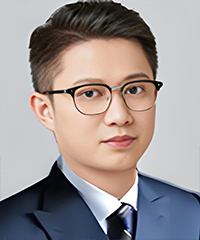
Dr. Zhe Zeng is a senior scientist affiliated with the Danone Nutricia Research Institute in the Netherlands. He has been engaged in research on gut microbiota and microbial physiological metabolism for over ten years. He obtained his Ph.D. from Wageningen University in the Netherlands and his Master's degree from the Key Laboratory of Synthetic Biology at the Chinese Academy of Sciences. He also serves as a guest editor for the renowned microbiology journal Frontiers in Microbiology and as an industry mentor for several universities. He founded NewPro Bioworks, which leverages synthetic biology enabling technologies and precision fermentation to advance the biomanufacturing of functional dairy proteins such as lactoferrin, casein, and beta-lactoglobulin.
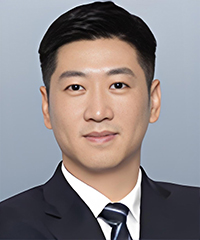
Dr. Han currently serving as a Senior Researcher at Greater Bay Area Institute of Precision Medicine and a Concurrent Researcher at the School of Life Sciences, Fudan University. He obtained his Ph.D. in 2006 from the National University of Singapore (NUS), and from 2006 to 2009, he was a postdoctoral fellow at the National Institutes of Health (NIH), National Center for Biotechnology Information (NCBI) in the United States. From 2009 to 2018, he served as a Staff Scientist and Senior Scientist at the NIH. From 2018 to 2021, he was the Chief Scientist at Tencent's U.S. Medical AI Lab and a Tencent Expert Researcher. His main research areas are Artificial Intelligence-Aided Drug Design (AIDD) and bioinformatics; focusing on the next-generation artificial intelligence pharmaceutical technology driven by data and knowledge, as well as research combining AI with medicine, pharmacy, biology, and chemical knowledge driven by big data.
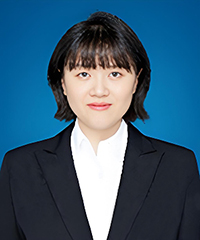
Dr. Wu studies at the Institute of Biochemistry and Cell Biology, Shanghai Branch of the Chinese Academy of Sciences, her main research direction was the signaling mechanism of T cells, focusing on the activation mechanism of the T cell immune receptor TCR from the perspectives of signal receptors and lipid molecules, as well as the design and modification of CAR-T cells. By establishing a quantitative mass spectrometry system, it was discovered that TCR is a signal self-regulatory receptor that includes both activating and inhibitory motifs. The novel E28Z CAR-T cells designed based on this theoretical foundation have shown strong anti-tumor activity in both hematological and solid tumor models. The research findings were published in CELL and were selected as one of the "Top Ten Advances in Chinese Life Sciences" for 2020 and one of the "Important Medical Progress" in China for 2020. In addition, she wrote a review article on the regulation of T cell signaling by lipid molecules on the cell membrane, which was published in Nature Reviews Immunology. She has a systematic understanding of the molecular mechanisms by which lipid molecules regulate T cells, which can lay the foundation for future research.
